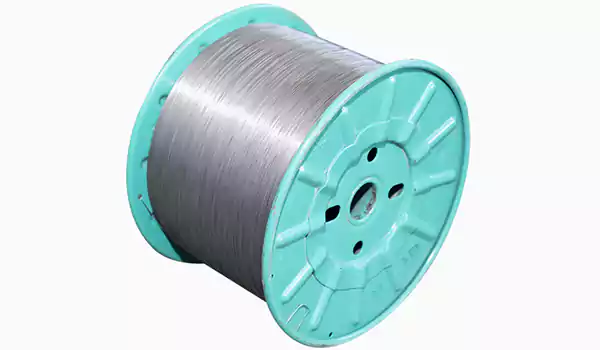
Picking the most suitable metal tubing for your task hinges on familiarity with its attributes and application scenarios. Common specifications include material type, wall thickness, length, and tolerances. Aspects such as rated pressure, thermal tolerance, and corrosion defence are key when choosing pipes for industry, commerce, or residences. Metallic pipes are utilized in construction sites, factory setups, infrastructure schemes, water distribution, gas transmission, wastewater lines, supportive frameworks and dedicated industries
- Clarifying the task's requirements enables selection of the most fitting piping
- Check regulatory standards and technical codes for comprehensive metal pipe specs
- Choose materials based on pressure demands, temperature exposure and corrosive environments
Structural Tube Steel: Sturdiness, Lifespan, and Adaptability
Drawn steel tubes are celebrated for their load-bearing power and are commonly used in industrial, structural and commercial applications. Their outstanding durability derives from how they are manufactured and processed. Fabricated by forming steel billets or rods into welded or seamless profiles, these tubes show excellent corrosion and wear resistance with extended serviceability in demanding conditions. Versatile tube steel can be fabricated into broad ranges of profiles—from standard tubes to complex geometries—for bespoke applications. Used across heavy infrastructure, architectural frameworks and complex mechanical assemblies, tube steel's resilient strength, extended durability and versatility make it a cornerstone of modern industryExpanded Metal Lattice for Heightened Security and Safety
Expanded metal mesh is commonly specified for projects that seek a balance of solid security and enhanced safety. Its perforated structure supports visibility and also functions as a robust barrier against unauthorized access and hazards. Adjustable aperture sizes and thickness choices allow the mesh to be tuned to project needs
- The mesh's durable construction withstands impacts, deliberate damage and harsh weather conditions
- Plus, uncomplicated installation and small upkeep demands support sector-wide adoption
- Used to secure vital infrastructure and protect workers in industrial settings, expanded metal offers comprehensive protection
Industrial Deployment of Metal Mesh
Steel mesh sees broad industrial application due to high strength, long life and adaptable function. It contributes a durable scaffold for filtering, screening, strengthening and guarding applications. Within building works, steel mesh commonly reinforces concrete to increase tensile capacity and limit cracking. Likewise, steel mesh is utilized in bridged sections, tunnel linings and civil works for added support and load-carrying ability. Industrial manufacturing uses steel mesh for filtering and screening, leveraging its fine weave to separate different-sized particles in sieving and purification processes. Applications in security and safety cover guardrails, fencing and enclosures that help avert unauthorized access and protect workers. Its strong tensile attributes allow it to absorb impacts and forces, granting consistent protective performance in challenging environments
Metal Pipe Structural Implementations
By virtue of their strength, metal pipes function as vital elements in many structural implementations. Their adaptability supports building durable frameworks that carry loads for multiple industries. From skyscrapers to bridges and underground pipelines, metal pipes provide a backbone and withstand rigorous environmental pressures and exposures. Corrosion resistance combined with straightforward fabrication boosts their relevance in current building methods
Deciding on Tube Steel for Your Project
When planning construction or fabrication, selecting the right tube steel is critical. Tube steel provides a balance of strength, durability and relatively light weight making it suited to many uses. Yet the plethora of grades and specs available makes selecting tube steel a sometimes complex task
- To succeed, assess intended application, load requirements and environmental conditions
- Aspects like wall thickness, diameter and material grade directly affect tube steel performance
When load demands are high, choose heavy-gauge, high-yield tube steel with thicker walls; for lightweight assemblies, select thinner-walled, low-mass steel
Seek guidance from professional engineers or reputable metal vendors to determine the best tube steel for your requirements
Benefits and Advantages of Expanded Metal in Construction
Expanded metal provides several functional and performance benefits suited to construction. Its lower weight facilitates placement and installation and helps decrease labor-related costs. Furthermore, the open weave increases airflow and aids drainage, minimizing moisture problems. Durable construction renders it ideal for situations demanding high resistanceOverview of Metal Pipe Connections
Connection assemblies in piping are core components allowing secure movement of fluids and gases. Choosing the right connection depends on pipe diameter, material, pressure rating and application. Popular connection methods include threaded, flanged and welded joints with varying strength and sealing behaviors. Threaded connections fasten male and cold-rolled steel plate female threads together, flanged types secure plates with bolts, and welded types create permanent seals by applying heat and pressure. Being aware of each connection style's traits supports building a reliable and leak-proof piping systemVersatile Home Project Uses for Steel Mesh
Metal steel mesh delivers strong, lasting and adaptable properties for numerous DIY projects. Its networked open formation fits uses like fences, screens and decorative components. What's more, its light weight and easy handling make it widely used by both beginner and expert DIYers
- Think of steel mesh for your next practical or decorative DIY task
Metal Pipes: Functional Plumbing to Structural Support
Metal pipes serve as vital components in contemporary building and infrastructure for strength, durability and versatility. While once primarily for plumbing, metal pipes have developed into structural reinforcement and support elements. From foundations and supports to water supply and gas distribution networks, metal pipes deliver essential functions in modern infrastructure. Strong material properties let them handle large pressures and forces while corrosion protection maintains long-term reliability. Also, the ease of forming allows pipes to be configured in many shapes to meet divergent application demands
Design Potential and Function of Expanded Metal
Expanded metal enables varied design expressions alongside strong functionality. The open layout enables both decorative architectural implementations and practical industrial safety functions. Expanded metal's strength lets it bear heavy loads while preserving visual appeal and desirability
- Additionally, the open pattern enhances airflow and makes it suitable for areas demanding temperature control or heat release
- The scope of expanded metal includes construction, industrial manufacturing, transportation, automotive and design-related projects